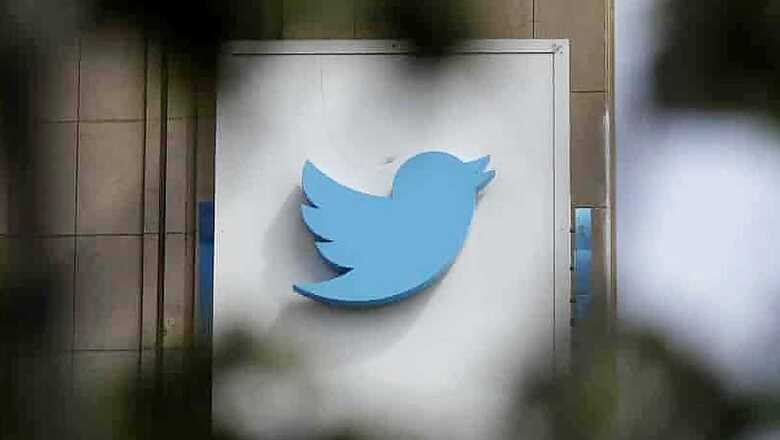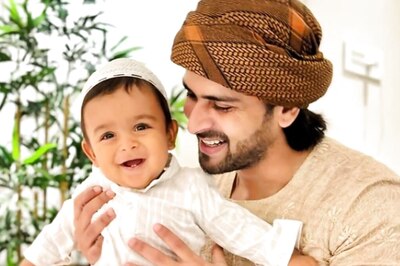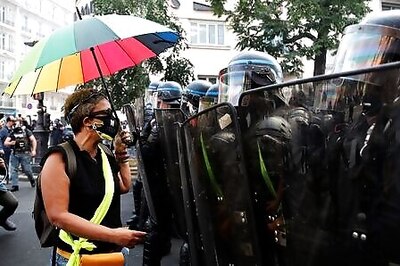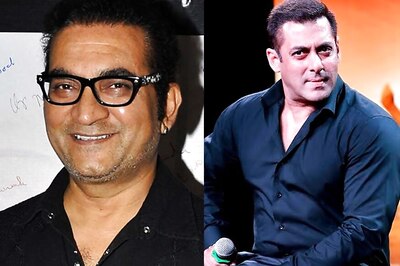
views
Over the past two days, conversations around Twitter and its position in India have come under significant scrutiny. Yesterday, Ravi Shankar Prasad, the union minister for electronics and information technology, took to various social media platforms to highlight Twitter’s non-compliance of the new IT Rules, 2021. While the minister did not explicitly label Twitter as not being an “intermediary" any longer, he highlighted Twitter’s failure to meet the revised Intermediary Guidelines under Section 79 of the Information Technology Act, 2000.
On this note, it is important to understand exactly where does Twitter stand at the moment, and what this means in the immediate (and long-term) future. As of now, Twitter is expected to appear before a parliamentary committee on information technology tomorrow, June 18 at 4PM, to “hear the views of representatives of Twitter followed by evidence of representatives Electronics Technology ‘Safeguarding citizens’ rights and prevention of misuse of social/online news media platforms including special emphasis on women security in the digital space," according to the agenda of the Parliamentary Panel. While the specific agenda may be different, it is still expected to hold relevance in terms of Twitter’s immediate future in India.
Is Twitter really no longer an intermediary?
As Apar Gupta, executive director of the Internet Freedom Foundation of India (IFF) tells News18, things aren’t exactly quite as black and white. “There is no certification that’s given to any entity to qualify as an intermediary. It is defined under the IT Act, and any entity that functions under the definition of the Act can qualify as an intermediary. So, there’s no application or registration for it to be revoked per se," Gupta says.
Along with this, Gupta further highlights that the intricacies of India’s IT Act itself may prevent an outright labelling of Twitter as not being an intermediary. “Section 69 states that for any request for blocking content of any form, the government can approach an intermediary platform. The present directive is not a blanket removal of the intermediary tag, because then the question to the government would be that if Twitter is not an intermediary, how’ll they send a blocking directive?," says Gupta.
On its part, Twitter has so far maintained that it still is in the process of making its appointments for the posts of a Chief Compliance Officer, a Nodal Contact Officer and a Resident Grievance Officer. While government officials have now stated that Twitter has failed to comply despite repeated correspondences and timeline extensions, a Twitter India spokesperson has stated to the media so far that it remains in conversation with the government to resolve its status.
Has this happened anywhere else in the world?
Controlling social media platforms by central governments isn’t exactly new. Twitter has for long been outright banned in China, Iran, North Korea and Turkmenistan, while on June 5, 2021, Nigeria also joined this list. While Nigerian president Muhammadu Buhari has so far called the ban “temporary", many reports have noted that the ban on the app may have been a knee-jerk reaction by the nation’s government against Twitter deleting a post made by Buhari, citing its community guidelines against abusive behaviour as its reasoning, and subsequently also banning him from the platform for 12 hours.
However, the situation in India may not be directly equatable to nations where the platform is outright banned. N.S. Nappinai, a senior lawyer at the Supreme Court of India and the founder of Cyber Saathi, states that any instance of non-compliance could have led to Twitter ending up in this situation. As she tells News18, “Section 79 offers exemption from liability, and says that if companies comply with all regulations, it will get all necessary exemptions. This has been applicable since 2000, and also through revisions in 2008, 2011 and now 2021 as well. All of them state that if Twitter did not comply with all legal requirements, then it would be in violation. This has been a long-standing legal requirement, and not something that has been newly enforced by the present government."
The most direct and equivalent precedent of such an incident is ex-American president Donald Trump signing an executive order that attempted to take away the intermediary protection afforded to companies such as Facebook and Twitter, under Section 230 of the United States law. On May 15, present US president, Joe Biden, revoked the executive order, which yet again gave Twitter immunity against prosecution.
Twitter can be called up for aiding and abetting crimes. Cases of defamation, fake news and hate speech will deem Twitter as a publisher. But, when it is a crime committed using the platform, then they’ll become susceptible to the respective provision of law.
What consequences can Twitter face right now?
As both Gupta and Nappinai clarify, it is the issue of legal prosecution that can potentially make life difficult for Twitter in India. However, as both clarify, it is not directly up to the government to inflict these consequences on Twitter, but will instead be up to courts in India, in response to cases filed against Twitter – such as the FIR by Loni Border police station’s sub-inspector, Naresh Singh, against a number of journalists, leaders of the Indian National Congress, and Twitter itself.
“One implication is that of Twitter being deemed as a publisher (and not intermediary), but more importantly, they can now be called up for aiding and abetting crimes. Cases of defamation, fake news and hate speech will deem Twitter as a publisher. But, when it is a crime committed using the platform, then they’ll become susceptible to the respective provision of law, as applicable to the crime cited in the case. For instance, in cases of child sexual abuse content, which is a cognisable offence and has zero tolerance around the world, Twitter will now be charged as a publisher, under the penalties as implied under this particular section of the law," says Nappinai.
Courts may determine if Twitter does qualify for protection, and may even include statements from government officials to determine if it does qualify for protection.
However, Nappinai also explains that even under these laws, there are specific provisions that may not directly hold Twitter to be a guilty party under the Indian Penal Code. She says, “In the above instance, for example, there is a very specific requirement of ‘dishonestly fraudulent intent’ in that transmission (of offensive content such as child sexual abuse). Hence, in this case, Twitter won’t be liable – because if they were unaware of the content being transmitted, they won’t be charged with intent."
IFF’s Gupta agrees, too. “If the presence of a company representative is required for police questioning or other particulars of the said case (the FIR against the company by sub-inspector Singh), Twitter may argue that it is only a technical platform, and seek exemptions under the law. The courts may then determine whether Twitter does qualify for protection or otherwise, and in this circumstance, the case may even include statements from government officials to determine if Twitter does indeed qualify for protection, or otherwise."
“So," Gupta says, “Life certainly becomes tougher for Twitter, but the blanket assertion that the legal immunity has been taken away from Twitter is not entirely correct."
Is there a way back from this for Twitter?
The final question is a more difficult one to answer, but if Twitter does complete its due compliance, then as per law, it should be afforded the legal exemptions once again. As Gupta states, “Twitter continues to operate the way it has been, for now." He further adds that what happens next will also depend on specifics of compliance under the new IT Rules, 2021, which the government would need to furbish going forward.
“The new IT Rules do not state specifics of what qualifies as eligible appointment (of the three officers, which Twitter has reportedly failed to comply with). Can they appoint an interim officer and then a permanent one – the rules do not specify. They also do not prescribe what constitutes compliance in certain cases," Gupta adds.
The meeting with the Parliamentary Committee tomorrow, to be chaired by Shashi Tharoor, may also shed light on where Twitter stands under the government’s radar. As Nappinai states, “Twitter knew the need for compliance very well, and if it had a problem with the IT Rules, 2021, it was open to Twitter to go and file a case, contest before court and get an interim protection pending judgement of the case." This clearly sums up that no matter what the course of action is, going forward, compliance with all IT Rules will not be an optional entry for any entity.
Read all the Latest News, Breaking News and Coronavirus News here.



















Comments
0 comment